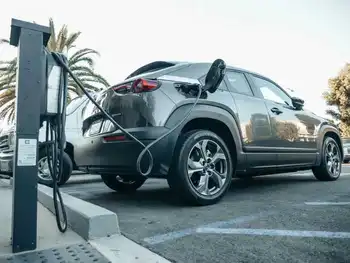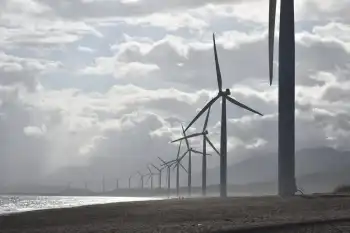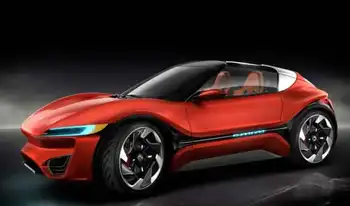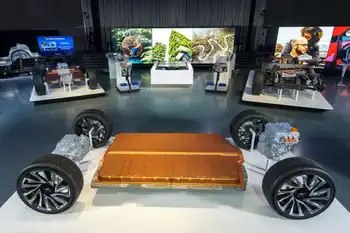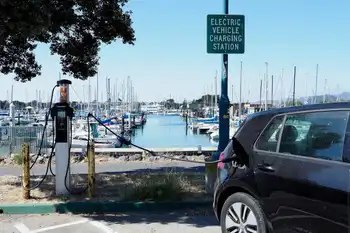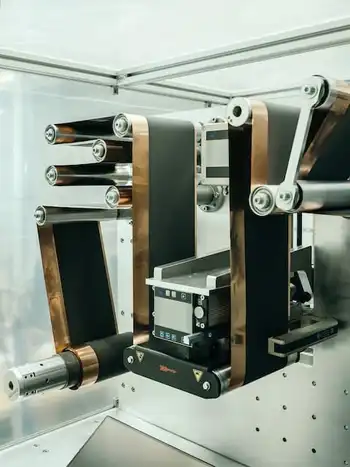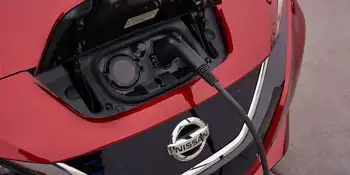EV Price Parity is nearing reality in Europe as subsidies, falling battery costs, higher energy density, and expanding charging infrastructure push Tesla, Volkswagen, and Renault to compete under EU CO2 regulations and fleet targets.
Key Points
EV price parity means EVs match ICE cars on total ownership cost as subsidies fade and batteries get cheaper.
✅ Battery pack costs trending toward $100/kWh
✅ EU CO2 rules and incentives accelerate adoption
✅ Charging networks reduce range anxiety and TCO
An electric Volkswagen ID.3 for the same price as a Golf. A Tesla Model 3 that costs as much as a BMW 3 Series. A Renault Zoe electric subcompact whose monthly lease payment might equal a nice dinner for two in Paris.
As car sales collapsed in Europe because of the pandemic, one category grew rapidly: electric vehicles, a shift that some analysts say could put most drivers within a decade on battery power. One reason is that purchase prices in Europe are coming tantalizingly close to the prices for cars with gasoline or diesel engines.
At the moment this near parity is possible only with government subsidies that, depending on the country, can cut more than $10,000 from the final price. Carmakers are offering deals on electric cars to meet stricter European Union regulations on carbon dioxide emissions. In Germany, an electric Renault Zoe can be leased for 139 euros a month, or $164.
Electric vehicles are not yet as popular in the United States, largely because government incentives are less generous, but an emerging American EV boom could change that trajectory. Battery-powered cars account for about 2 percent of new car sales in America, while in Europe the market share is approaching 5 percent. Including hybrids, the share rises to nearly 9 percent in Europe, according to Matthias Schmidt, an independent analyst in Berlin.
As electric cars become more mainstream, the automobile industry is rapidly approaching the tipping point, an inflection point for the market, when, even without subsidies, it will be as cheap, and maybe cheaper, to own a plug-in vehicle than one that burns fossil fuels. The carmaker that reaches price parity first may be positioned to dominate the segment.
A few years ago, industry experts expected 2025 would be the turning point. But technology is advancing faster than expected, and could be poised for a quantum leap. Elon Musk is expected to announce a breakthrough at Tesla’s “Battery Day” event on Tuesday that would allow electric cars to travel significantly farther without adding weight.
The balance of power in the auto industry may depend on which carmaker, electronics company or start-up succeeds in squeezing the most power per pound into a battery, what’s known as energy density. A battery with high energy density is inherently cheaper because it requires fewer raw materials and less weight to deliver the same range.
“We’re seeing energy density increase faster than ever before,” said Milan Thakore, a senior research analyst at Wood Mackenzie, an energy consultant which recently pushed its prediction of the tipping point ahead by a year, to 2024.
Some industry experts are even more bullish. Hui Zhang, managing director in Germany of NIO, a Chinese electric carmaker with global ambitions, said he thought parity could be achieved in 2023.
Venkat Viswanathan, an associate professor at Carnegie Mellon University who closely follows the industry, is more cautious, though EV revolution skeptics argue the revolution is overstated. But he said: “We are already on a very accelerated timeline. If you asked anyone in 2010 whether we would have price parity by 2025, they would have said that was impossible.”
This transition will probably arrive at different times for different segments of the market. High-end electric vehicles are pretty close to parity already. The Tesla Model 3 and the gas-powered BMW 3 Series both sell for about $41,000 in the United States.
A Tesla may even be cheaper to own than a BMW because it never needs oil changes or new spark plugs and electricity is cheaper, per mile, than gasoline. Which car a customer chooses is more a matter of preference, particularly whether an owner is willing to trade the convenience of gas stations for charging points that take more time. (On the other hand, owners can also charge their Teslas at home.)
Consumers tend to focus on sticker prices, and it will take longer before unsubsidized electric cars cost as little to drive off a dealer’s lot as an economy car, even for shoppers weighing whether it’s the right time to buy an electric car now.
The race to build a better battery
The holy grail in the electric vehicle industry has been to push the cost of battery packs — the rechargeable system that stores energy — below $100 per kilowatt-hour, the standard measure of battery power. That is the point, more or less, at which propelling a vehicle with electricity will be as cheap as it is with gasoline.
Current battery packs cost around $150 to $200 per kilowatt-hour, depending on the technology. That means a battery pack costs around $20,000. But the price has dropped 80 percent since 2008, according to the United States Department of Energy.
All electric cars use lithium-ion batteries, but there are many variations on that basic chemistry, and intense competition to find the combination of materials that stores the most power for the least weight.
For traditional car companies, this is all very scary. Internal combustion engines have not changed fundamentally for decades, but battery technology is still wide open. There are even geopolitical implications. China is pouring resources into battery research, seeing the shift to electric power as a chance for companies like NIO to make their move on Europe and someday, American, markets. In less than a decade, the Chinese battery maker CATL has become one of the world’s biggest manufacturers.
Everyone is trying to catch Tesla
The California company has been selling electric cars since 2008 and can draw on years of data to calculate how far it can safely push a battery’s performance without causing overheating or excessive wear. That knowledge allows Tesla to offer better range than competitors who have to be more careful. Tesla’s four models are the only widely available electric cars that can go more than 300 miles on a charge, according to Kelley Blue Book.
On Tuesday, Mr. Musk could unveil a technology offering 50 percent more storage per pound at lower cost, according to analysts at the Swiss bank UBS. If so, competitors could recede even further in the rearview mirror.
“The traditional car industry is still behind,” said Peter Carlsson, who ran Tesla’s supplier network in the company’s early days and is now chief executive of Northvolt, a new Swedish company that has contracts to manufacture batteries for Volkswagen and BMW.
“But,” Mr. Carlsson said, “there is a massive amount of resources going into the race to beat Tesla. A number, not all, of the big carmakers are going to catch up.”
The traditional carmakers’ best hope to avoid oblivion will be to exploit their expertise in supply chains and mass production to churn out economical electrical cars by the millions.
A key test of the traditional automakers’ ability to survive will be Volkswagen’s new battery-powered ID.3, which will start at under €30,000, or $35,000, after subsidies and is arriving at European dealerships now. By using its global manufacturing and sales network, Volkswagen hopes to sell electric vehicles by the millions within a few years. It plans to begin selling the ID.4, an electric sport utility vehicle, in the United States next year. (ID stands for “intelligent design.”)
But there is a steep learning curve.
“We have been mass-producing internal combustion vehicles since Henry Ford. We don’t have that for battery vehicles. It’s a very new technology,” said Jürgen Fleischer, a professor at the Karlsruhe Institute of Technology in southwestern Germany whose research focuses on battery manufacturing. “The question will be how fast can we can get through this learning curve?”
It’s not just about the batteries
Peter Rawlinson, who led design of the Tesla Model S and is now chief executive of the electric car start-up Lucid, likes to wow audiences by showing up at events dragging a rolling carry-on bag containing the company’s supercompact drive unit. Electric motor, transmission and differential in one, the unit saves space and, along with hundreds of other weight-saving tweaks, will allow the company’s Lucid Air luxury car — which the company unveiled on Sept. 9 — to travel more than 400 miles on a charge, Mr. Rawlinson said.
His point is that designers should focus on things like aerodynamic drag and weight to avoid the need for big, expensive batteries in the first place. “There is kind of a myopia,” Mr. Rawlinson said. “Everyone is talking about batteries. It’s the whole system.”
“We have been mass-producing internal combustion vehicles since Henry Ford,” said Jürgen Fleischer, a professor at the Karlsruhe Institute of Technology. “We don’t have that for battery vehicles.”
A charger on every corner would help
When Jana Höffner bought an electric Renault Zoe in 2013, driving anywhere outside her home in Stuttgart was an adventure. Charging stations were rare, and didn’t always work. Ms. Höffner drove her Zoe to places like Norway or Sicily just to see if she could make it without having to call for a tow.
Ms. Höffner, who works in online communication for the state of Baden-Württemberg, has since traded up to a Tesla Model 3 equipped with software that guides her to the company’s own network of chargers, which can fill the battery to 80 percent capacity in about half an hour. She sounds almost nostalgic when she remembers how hard it was to recharge back in the electric-vehicle stone age.
“Now, it’s boring,” Ms. Höffner said. “You say where you want to go and the car takes care of the rest.”
The European Union has nearly 200,000 chargers, far short of the three million that will be needed when electric cars become ubiquitous, according to Transport & Environment, an advocacy group. The United States remains far behind, with less than half as many as Europe, even as charging networks jostle under federal electrification efforts.
But the European network is already dense enough that owning and charging an electric car is “no problem,” said Ms. Höffner, who can’t charge at home and depends on public infrastructure.
Related News
